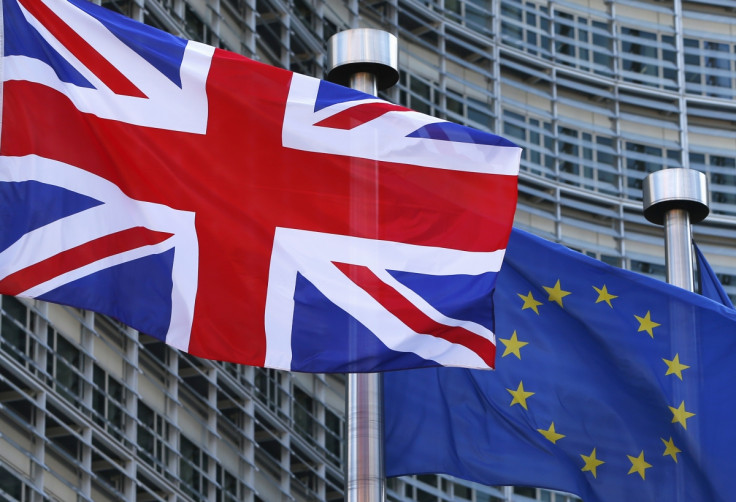EU referendum: Is Norway a viable model for Britain post-Brexit?

As the UK prepares to hold a referendum on its EU membership on 23 June, arguments for the "remain" and "leave" camps are gripping the nation – and indeed the continent. Europhiles claim that the UK is stronger, more prosperous and safer as part of the EU while Eurosceptics denounce Brussels as a bastion of bureaucrats who view the UK as a piece of their federalist puzzle, intent on undermining its sovereignty.
But even if the UK population votes to leave the EU, it would still need to have some kind of relationship with its major trading partner. In 2014, the EU accounted for 45% of the UK's exports and 53% of imports of goods and services, according to a 2016 House of Commons briefing paper.
All of which has led some commentators – and many Eurosceptics – to look to Norway and proclaim the Nordic country as an example of how a state can stand outside, yet happily coexist with, Europe.
Given that maintaining a relationship with its continental partners is crucial to the UK's future, IBTimes UK takes a look at the Norwegian model to see how its relationship with the EU works. It is vital to note that the UK would not be able to simply transplant the Norwegian example, but would have to negotiate its own settlement.
If Norway is not part of the EU, how does it trade with the rest of the continent?
Norway enjoys close relations with the EU, but it is not a Member State. It is a member of the European Economic Area (EEA), along with the other EU countries, Iceland and Liechtenstein.
This means that Norway has access to the market's four freedoms: the movement of goods, people, capital and services. But this comes at a price. Oslo contributes hundreds of millions of Euros a year to the EU's budget (around €656m [£507m, $719m]), despite not having voting rights or full participation in the bloc's institutions. Overall, it is the 10th highest contributor to the EU budget.
According to think tank Open Europe, "if the UK were to opt for a Norwegian-style relationship it would still be bound by great swathes of the EU regulation that rankles with businesses and the general public, but – and this is the crucial point – without any vote on it."
Norway does however, have independence in the following areas: agriculture and fisheries policy, external trade and regional and foreign affairs. Europe is also its biggest trading partner by a country mile – 58% of its foreign trade is with the continent compared to 24% with the Americas and 18% with Asia and Africa.
As it controls its own fisheries policy, Norway has managed to protect this important aspect of its economy, and stocks are thriving.
What about EU migration?
Free movement rules are not specific to the EU. As a member of the EEA, Norway is obliged to apply the same rules governing free movement as EU states, but it cannot vote on the rules.
As a percentage of the total population, Norway has actually experienced higher inward EU migration than the UK. Non-EEA member Switzerland is also bound by the principle of free movement and it too has seen higher levels of inward migration in comparison to the UK, so a Brexit wouldn't necessarily solve the UK's migration concerns.
According to Open Europe, 4.2% of the UK's citizens were born in another EU country as of 2013. That pales in comparison to the Swiss proportion of 15.6%.
Is full UK sovereignty a fantasy?
A key pillar in the eurosceptic argument is that a vibrant and dynamic UK should no longer be saddled by cumbersome ties to the rest of the EU. "As a minister I've seen hundreds of new EU rules cross my desk, none of which were requested by the UK Parliament, none of which I or any other British politician could alter in any way and none of which made us freer, richer or fairer," Justice Secretary Michael Gove said.
The truth of the matter is that Britain cannot have something for nothing and even if it opts to leave the EU, some powers would still need to be relinquished to reap the benefits of trade – just as Norway has done.
Norwegian Prime Minister Erna Solberg said: "I believe that the European Union is a political organisation. It does make different decisions when they need to make it, but to believe that you will get everything you want and not give anything back – that doesn't happen in any political bargaining."
In a report on the UK's EU membership, the Centre for European Reform think tank concluded: "The alternatives to EU membership are unsatisfactory: they either give Britain less control over regulation than it currently enjoys, or they offer more control but less market access. In a referendum, Britain will have to choose between national sovereignty and unimpeded access to EU markets. While membership of the EU is as much about broader, political questions as economics, the economic case for staying in the Union is strong."
When British voters head to the polls on 23 June, it is not a straight shootout between sovereignty and access to EU markets as some eurosceptics would have you believe. Any scenario will require a compromise – the only difference is that the electorate knows what David Cameron is putting on the table, but not what a post-Brexit UK would look like.
© Copyright IBTimes 2025. All rights reserved.






















